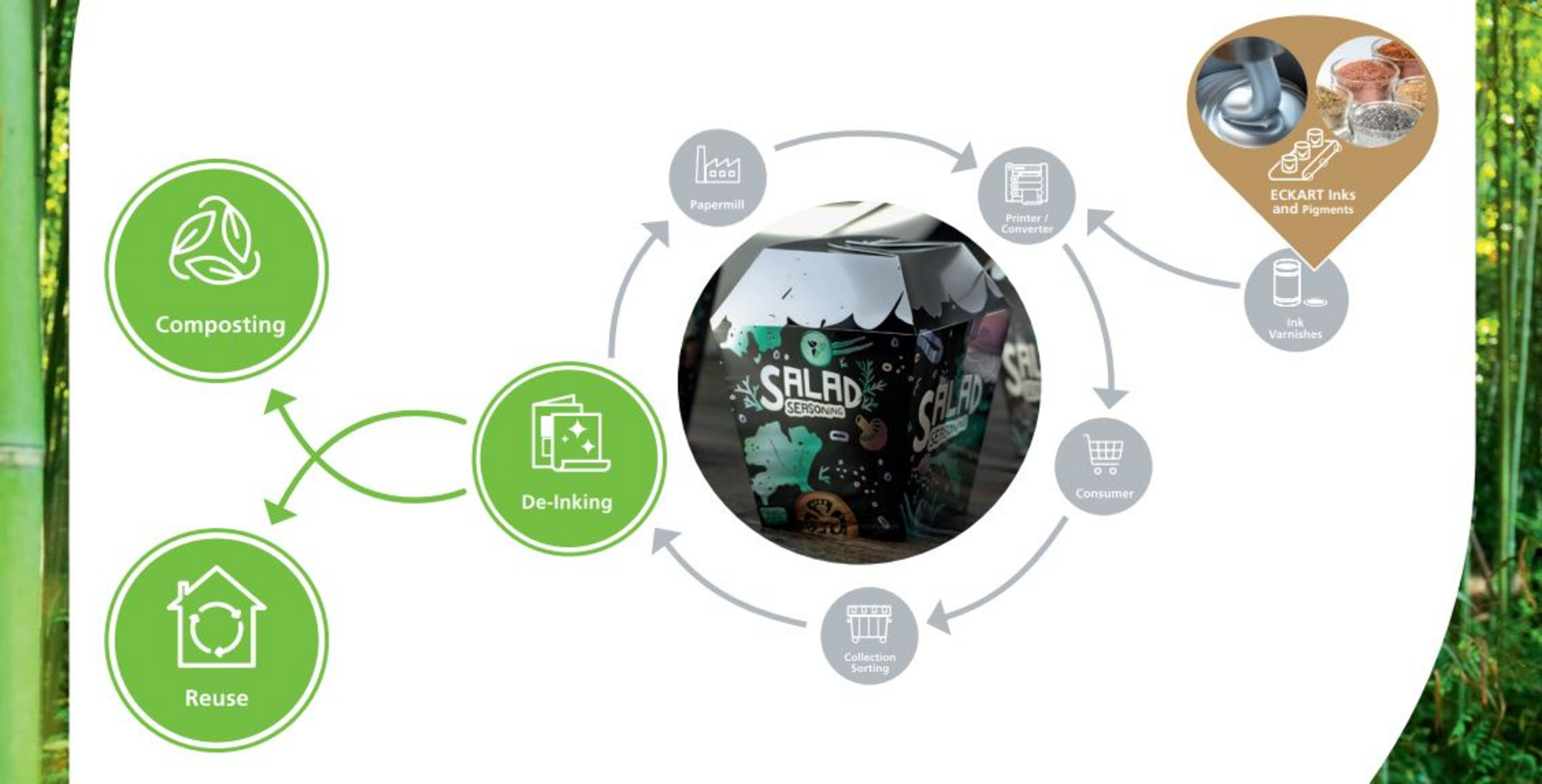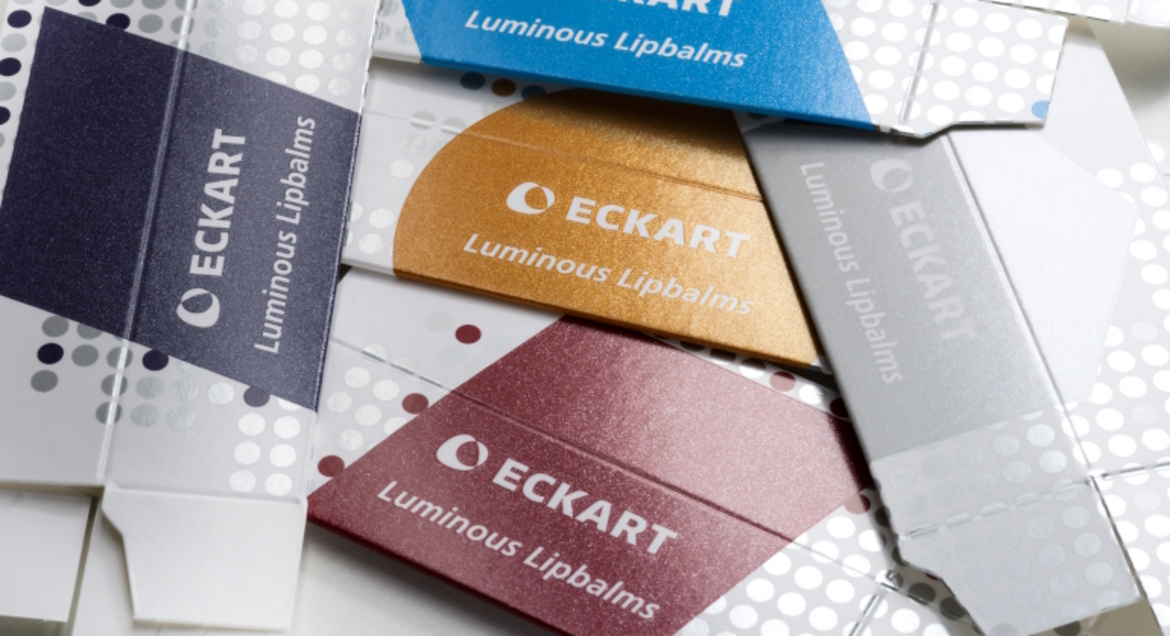

ECKART Customer Service
ECKART GmbH
Do you have questions about our products or services? We are happy to help you.
The printing industry is undergoing a significant transformation, driven by the urgent need for sustainable practices. As businesses and consumers alike demand eco-friendlier options, the focus has shifted towards materials and processes that support the circular economy.
ECKART, a leading provider of metallic effect inks, is at the forefront of this change, offering products that not only enhance the aesthetic appeal of printed materials but also prioritize environmental responsibility.


The circular economy represents a systemic approach to economic development designed to benefit businesses, society, and the environment. In contrast to the 'take-make-waste' linear model, a circular economy is regenerative by design and aims to gradually decouple growth from the consumption of finite resources.
A critical aspect of this model in the printing industry is the ability to recycle printed materials effectively.
This is where the process of de-inking plays a pivotal role, allowing fibers to be reclaimed from paper and packaging materials to produce new high-quality paper products. While there is already a high recycling rate in the areas of newspaper printing and commercial printing, there is still a lot of catching up to do in packaging. Here, both the return of the packaging material and its sortability and, in particular, the diversity of the raw materials used and complex structures pose a challenge for the recycling targets.

ECKART's metallic printing inks are engineered to be ideal partners for the circular economy. They are designed with de-inkability in mind, ensuring that the substrates they are used on can be sorted and recycled efficiently.
Tests conducted according to INGEDE Method 11 have demonstrated that prints with ECKART metallic pigments are perfectly suited for de-inking, scoring 100 out of 100 achievable points in the "magazine coated" benchmarking category.
This impressive result confirms that these inks do not compromise the recyclability of the paper products they adorn.
When compared to metallized film products, ECKART metallic printing inks offer several advantages that contribute to their sustainability profile:
1. Selective Surface Printing: ECKART inks can be applied precisely where needed, reducing waste and resource use.
2. Sortability: Metallized or foil-embossed surfaces are detected as foreign matter during the sorting process and sorted out; this is not the case with metal-effect printed packaging up to a very high percentage of the surface area; the material can be sent for recycling.
3. De-inkability: The inks are formulated to be removed easily during the recycling process, ensuring the paper fibers can be recovered without contamination.
4. Low Waste: With precise application and efficient use of materials, ECKART inks generate less waste than alternative methods.
5. Inline Process: Effects can be created using existing machine setups, eliminating the need for additional processes and materials.
6. Compatibility with Standard CMYK Colors: This allows for a wide range of design options without compromising recyclability.
7. Impressive Color Space and Effects: Different manufacturing methods that lead to different product properties and enable a variety of ink formulations. From extremely dark to extremely bright, and from smooth to mirror-like effects, the design possibilities are nearly infinite.

ECKART's commitment to sustainability is further evidenced by the results of product testing. Laboratory samples with silver and golden colored decorations achieved near-perfect scores in de-inkability tests, indicating that these inks can be removed effectively during the paper recycling process.
This not only preserves the quality of the recycled paper but also reduces the environmental impact associated with waste.
ECKART's metallic effect inks represent a significant advancement in sustainable printing. By aligning with the principles of the circular economy and demonstrating exceptional de-inkability, these inks provide an eco-friendly alternative to traditional metallized substrates.
With ECKART, the printing industry can achieve the dual goals of creating visually stunning products and protecting our planet for future generations.

Products
All results ProductsPages
All results PagesFurther information & other content
All results Content